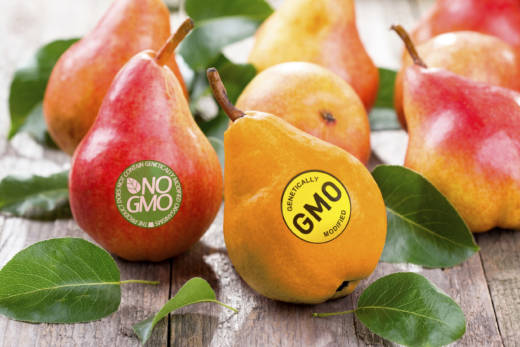“All of that seed belongs to the corporation that owns the patent on those seeds,” she says.
Hudson also worries about increased use of herbicides in GMO plants. Many of them are engineered to resist herbicides like Roundup.
“Spraying a crop with the same herbicide in a field over and over for several years depletes the soil of its nutrients,” says Hudson. “And it also creates weeds that are resistant to that particular herbicide.”
Under the measure, farmers could not plant any GMO seeds or grow GMO crops in unincorporated areas, which includes the majority of vineyards, dairies and farms in the county.
Measure M allows a transition period so that growers could continue cultivating existing GMO crops until the plants mature. Farmers who have GMO seeds in their possession would have to plant them in the growing season after the ordinance goes into effect. After that season, the GMO seeds would have to be destroyed or removed from the county.
Genetically modified plants are organisms whose genetic material has been altered to resist herbicides, weather drought, add nutritional benefits or improve crop yields.
Most big crops in the Midwest, such as corn, soybean and cotton, have been genetically modified. The chemical companies Monsanto, Syngenta, Bayer, BASF, and DuPont funded the No campaign on Measure M.
“The growing method is considered safe and very effective,” says Dave Kranz from the California Farm Bureau. “You don’t know what may be coming when you impose a blanket ban.”
Kranz uses the example of transgenic papayas in Hawaii to make his point. When the ringspot virus almost annihilated the fruit in the 1990s, the rainbow papaya saved the day. The genetically modified fruit rejected the pathogen.
Earlier this year the National Academy of Sciences released a report concluding that genetically engineered foods are safe to eat.
“In some cases technology is a perfectly appropriate solution,” says Kranz. He highlights the fact that Sonoma County is a grape-growing region that may need biotech to help vines weather severe droughts.
The ordinance would take effect as soon as election results are finalized, which is expected in early December.
Hudson says the campaign isn’t over; the next step will be a measure to ban GMOs in cities in Sonoma County. She’s worried about grasses in people’s yards and recreational areas.
“They have genetically engineered blue grass and fescue grasses that not only contaminate native grasses,” she says, “but it would also have the potential to blow into our pastures.”
